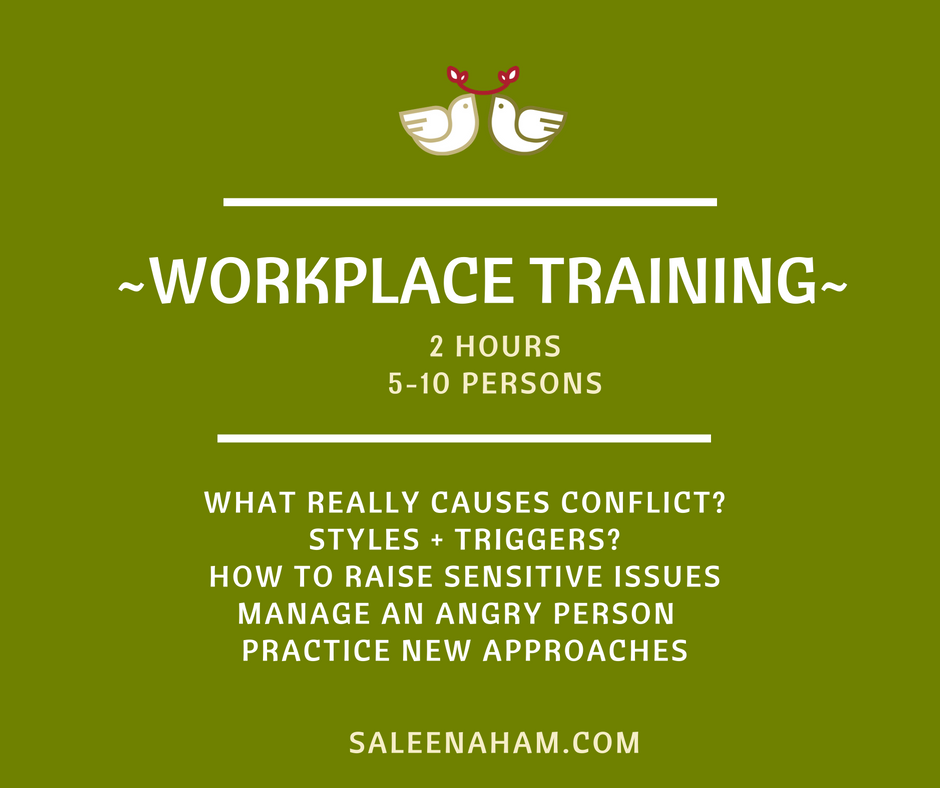Collaboration. How’s it working for you?
Is it a fantastic work paradigm and cultural shift or a management buzzword? It promises much in a space of fast paced change, pressures for decision-making in complexity and demand for new solutions.
Fantastic. Go get some “collaborating”.
All good.
How do you do that? Have a meeting? A workshop? Go for a coffee? A retreat?
To collaborate effectively means serious attention to the business of how we relate with each other. It’s about communication, sure, for common goals and purpose – but not just communicating.
Fundamentally, it is about how we relate to each other on the things that matter.
If you don’t have that foundation set well, don’t be surprised if you run into blocks.
Collaboration requires actually dealing with the messy reality of conflict, internal competing, misunderstandings, disconnect with leadership, localised apathy and also aggression.
Dealing with the un-discussables.
Collaboration relies on a culture that supports diverse input and truth-telling.
It’s about trust and cultures that support relating well together, respectfully at all levels, in the real experience of people. Not just rhetorically and not just for a powerful few.
This is work. Serious work.
It needs modelled and supported steps to personal awareness. It needs a context that allows challenge, safety for experimentation – the possibility of failure.
And it needs governance and accountability. Someone has to turn up and do things. We need to measure what’s going on. Decisions do need to be made and consequences recognised.
There needs to be safe space to permit people to speak up, without blame shifting or credit stealing.
There has to be freedom and skill to raise observations, concerns and perceptions of bad behaviour and non-performance, where-ever that presents. And to forgive, to learn; to see things fresh.
And to do this without eroding trust. Or being sacked. Or worse, professionally isolated.
Collaboration is a big challenge.
You will know when it isn’t working.
When they ask questions or make observations and get smacked down as a black-hat, trouble-maker, negative time-waster, non-team player? Disagreement is risky. Don’t bother.
When they do things differently and well but run into mysterious obstruction? Rumours start. Resources are blocked. They’re the crazy one, right. Unhinged?
Collective intelligence relies on trust and permission to challenge. It means creating a safe working space and decision-making culture for making things go forward – really.
Are you going through the motions of collaboration or do you want it to be real?
It’s not just Have-A-Chat.
Collaboration is about looking strategically at resources, needs, gaps and possibilities through the power of our relating for common purpose. Action to experiment. When it’s real, it’s mighty.
Collaboration is about dealing with what is really happening in the experience of those in the system. Diverse experience. It’s about what is supporting the things that are helpful and calling out what is not helpful. One solution is not going to be The Solution – we need nuance.
There will be experimenting with ideas and possibilities that are challenging and that may not work the first time, or at all. That may be confronting to the existing norms – in fact, certainly will be if you are genuinely looking for new ways. If it was easy already, it would not be an issue.
If it could be done with the existing thinking – we’d not need a new approach.
Collaboration relies on a safe space to be real, to tell truth to power and to each other. To get to the source of things, the heart of trouble, the essence of creativity.
That relies on skill in how this is done, going gently, because we don’t want to be completely stupid, with accountability and willingness.
It relies on curiosity. And leadership. Really bold leadership, to seize the nettle.
You’ve got to go through the mess to get to the best. That takes willingness. Courage.
Start small; start experimentally. Dip your toe in the water of a new approach.
The most important step is the first. Begin.
And sometimes – that needs an outsider to help.
To build skills and keep it safe, to resolve and relate.
That’s what I do.









